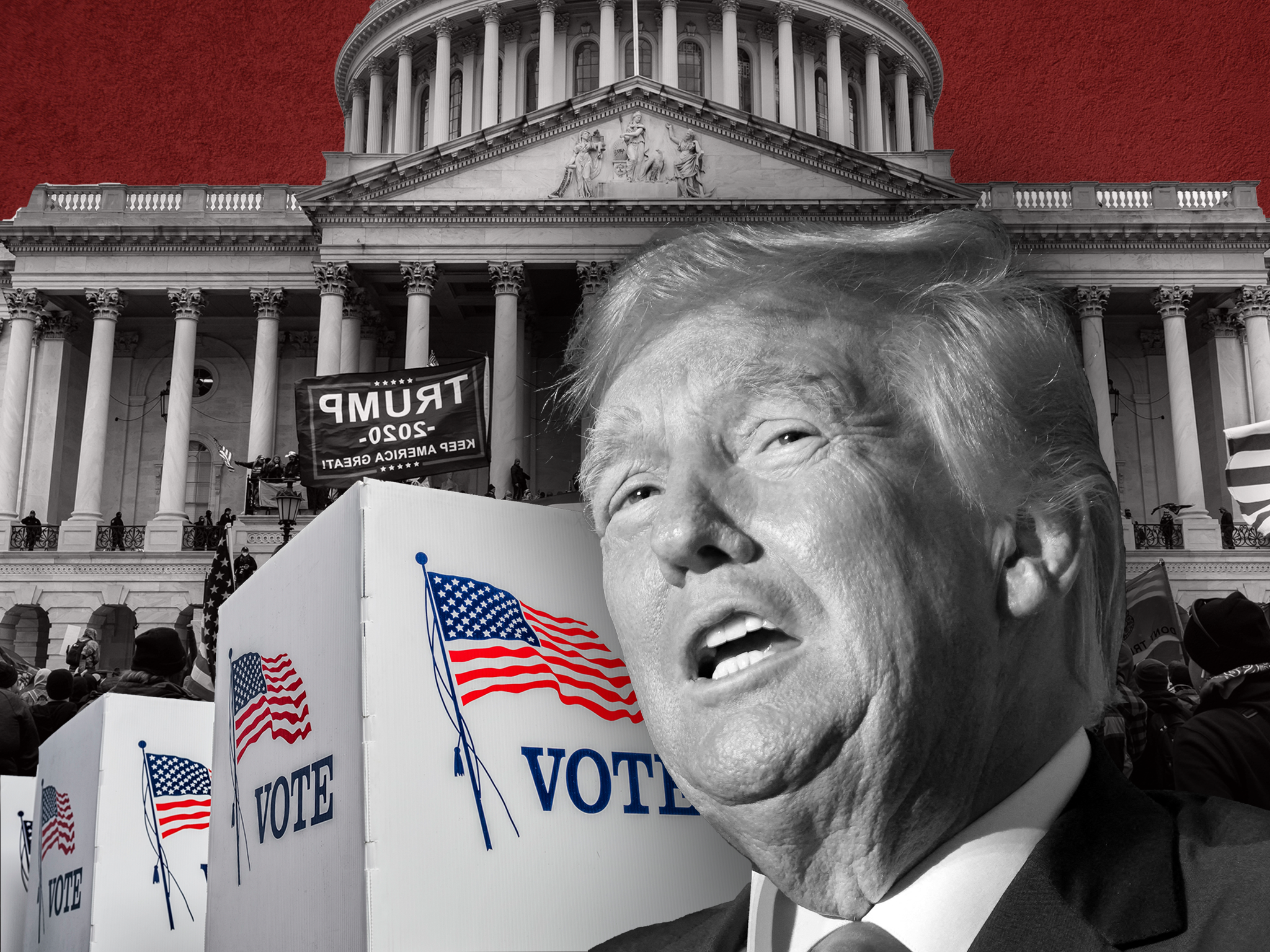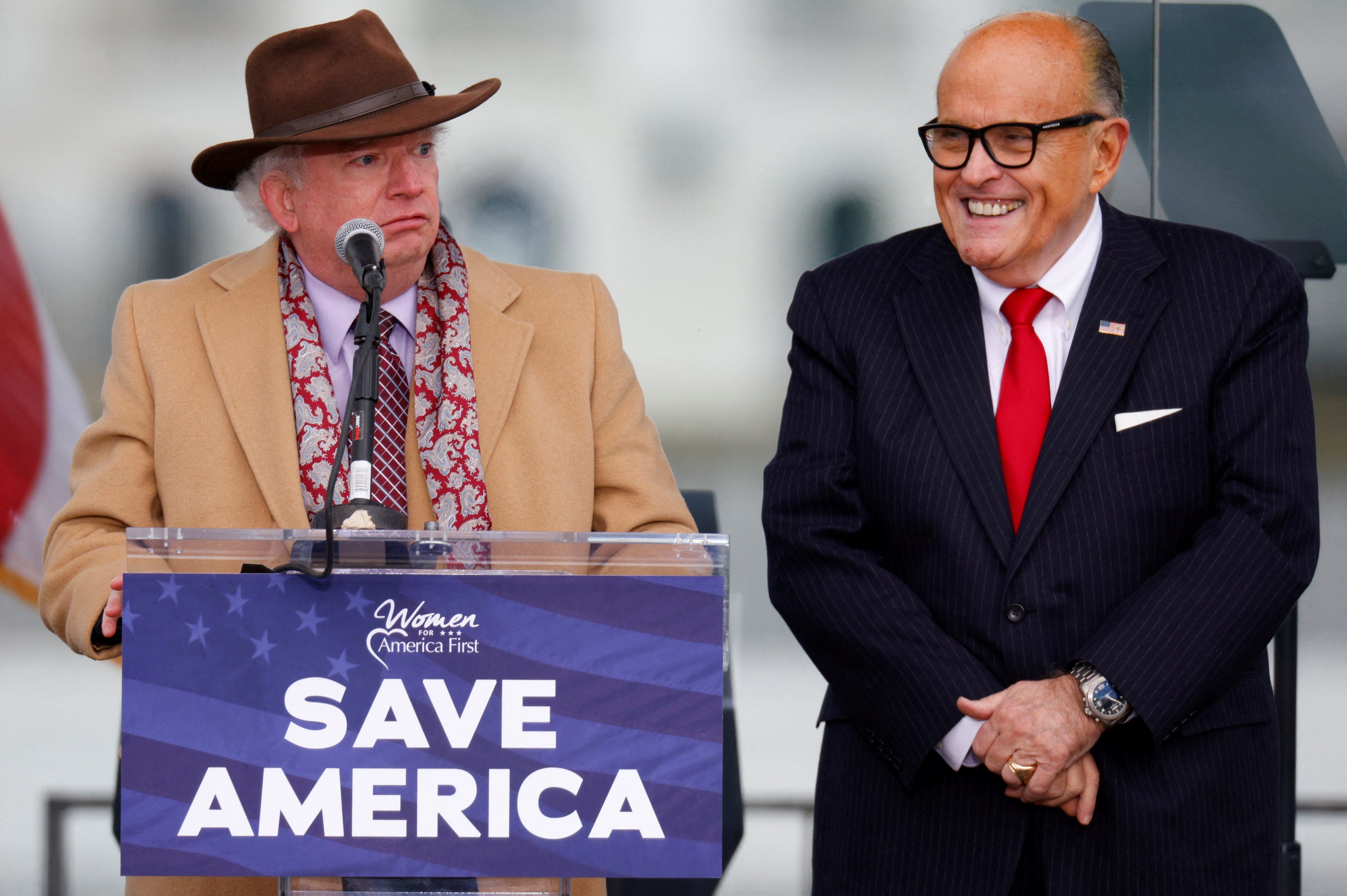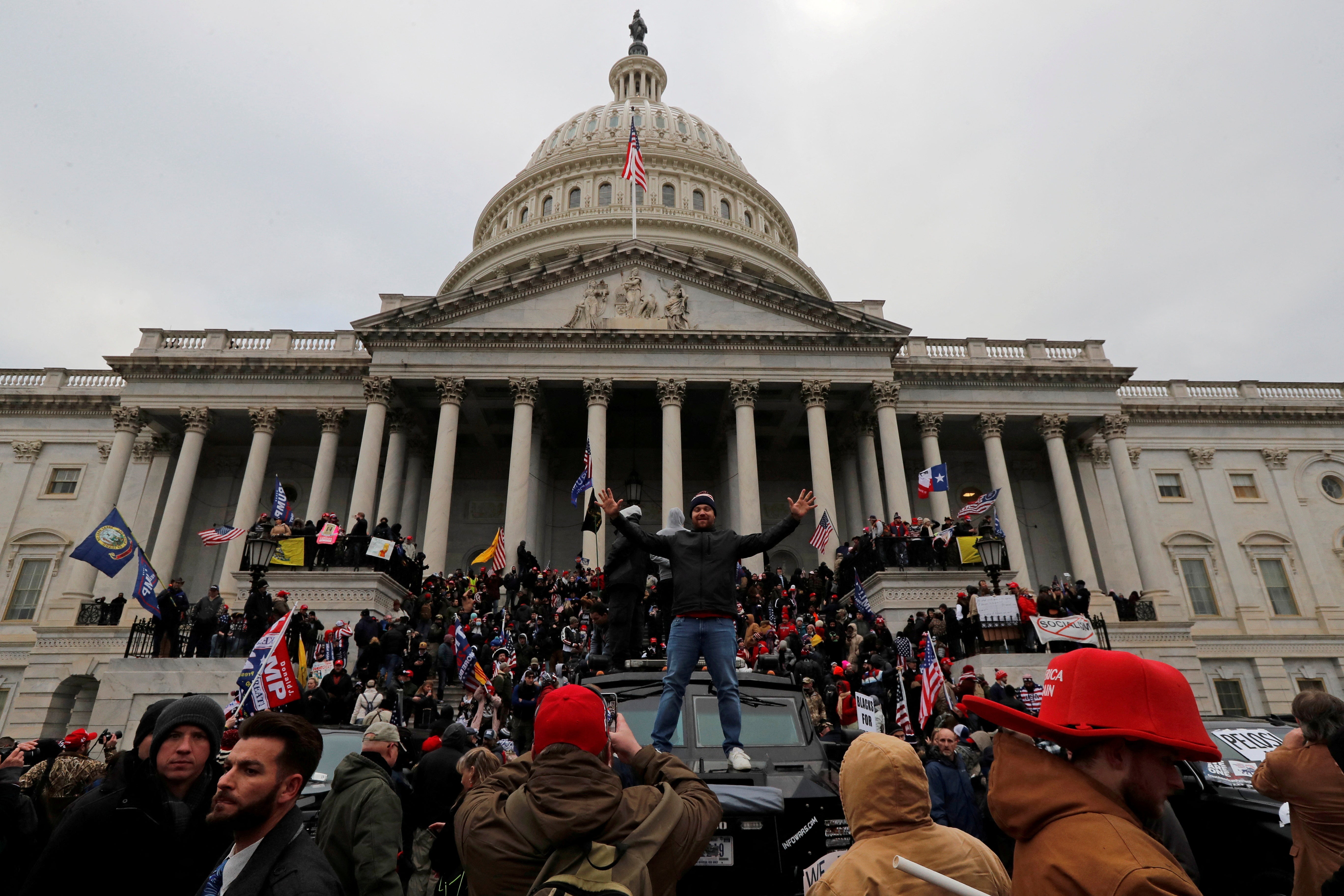Trump’s election interference case explained: Everything to know about the case as new evidence revealed
A sprawling Justice Department probe into the former president and his allies yielded four criminal charges in a stunning indictment outlining a path to power at whatever cost, Alex Woodward reports


A former president has been charged with crimes connected to his attempts to overturn the results of an American election.
The federal investigation into efforts by Donald Trump and his allies to subvert the outcome of the 2020 presidential election yielded four criminal charges, in a case that outlines a conspiracy to obstruct Joe Biden’s victory through a multi-state scheme, built on a legacy of lies and conspiracy theories to try to undermine the democratic process.
A case under Department of Justice special counsel Jack Smith followed a grand jury vote to indict the former president in 2023 after months of evidence and witness testimony.
The former president claimed “immunity” from the charges, arguing that the actions outlined in the indictment against him were part of his official duties while in office that should be shielded from criminal prosecution.
After a lengthy appeals process, the Supreme Court agreed to hear his defense, and ultimately agreed in July that Trump has some immunity from prosecution for his actions while in the White House.
Smith’s team scrambled to file another indictment, retaining the same four charges against Trump while navigating the Supreme Court’s decision affirming that a president is “absolutely” immune from criminal prosecution for actions that stem from official duties in office, and given “presumptive” immunity for actions in the “outer perimeter” of those duties.
On October 2, 2024, Smith’s team unveiled the fullest account yet of Trump’s alleged crimes, laying out across 165 pages Trump’s “increasingly desperate efforts” to cling to power with “knowingly false claims of election fraud.”
The lengthy filing traces the history of Trump’s false claims of election fraud, characterized as an attempt to cast doubt on the legitimacy of the election, despite knowing that his claims were false.
The filing then documents the state-by-state efforts by Trump, his unindicted co-conspirators and allies to pressure state officials, election workers and others to validate his scheme to reverse the loss, then organize allies to submit fraudulent election certificates falsely stating that he won.
Trump and 18 co-defendants were separately charged in Georgia in a sprawling racketeering case that mirrored the federal case, including Trump’s alleged pressure campaign against state officials and his then-Vice President Mike Pence to subvert election results against the will of Georgia voters.
Smith’s indictments follow a separate, lengthy House select committee investigation into the events surrounding and leading up to the attack on the US Capitol on January 6, 2021. A series of blockbuster public hearings laid out evidence and witness testimony describing the depth of Trump’s attempts to remain in office at whatever cost — including his failure to stop a mob that tried to do what he had failed to do in the states.
That panel’s final report provided a detailed account of the former president’s refusal to cede power — regardless of the outcome — while he privately acknowledged that he lost, as his baseless “stolen election” narrative fuelled his supporters to riot in the halls of Congress, an argument that also bolstered his second impeachment in the House, and his 2024 run for the presidency.
Who is under investigation?
The Justice Department’s investigation builds on years of work by federal prosecutors to investigate more than 1,000 people in connection with the January 6 attack, fuelled by the former president’s ongoing false claims that the election was rigged against him.
The resulting indictment listed six unnamed co-conspirators — understood to be Trump-connected attorneys, former administration officials and advisers, including former attorneys Rudy Giuliani, Kenneth Chesebro, John Eastman and Sidney Powell. None have been criminally charged in this case.
Prosecutors also talked to a number of chief aides and officials in Trump’s circle, including Pence, former White House chief-of-staff Mark Meadows, former White House counsel Pat Cipollone, his former deputy Pat Philbin, and former national security adviser Robert O’Brien, among others.
They also spoke with Georgia secretary of state Brad Raffensperger, who was on the other end of a call with Trump when he demanded that the state’s top elections official “find 11,780 votes” – enough for him to overturn Biden’s victory there.
That call, which was taped, also is at the center of the separate criminal case under Fulton County district attorney Fani Willis in Georgia.
Arizona – ground zero for the election denialism movement that gave rise to GOP figures such as Kari Lake – was a focal point for the Trump campaign and its allies, which filed several lawsuits against the state and some counties in an attempt to overturn the lawful results. Biden won the state by roughly 10,000 votes.

Federal prosecutors also talked to former Arizona governor Doug Ducey, who silenced a call from Trump while he was in the middle of certifying his state’s election results — a process that was being live-streamed and carried across news outlets.
Smith’s office subpoenaed the Office of the Arizona Secretary of State and has met with top elections officials in Wisconsin, New Mexico and Pennsylvania.
Prosecutors interviewed Michigan secretary of state Jocelyn Benson, whose office provided a tranche of documents that included communications between the state’s election officials, Trump’s former lawyers and members of his campaign as his allies targeted the critical battleground state.
Central to the investigation is whether Trump knew that he had lost but pressed ahead with spurious efforts to overturn election results anyway.
In May 2020, when the presidential election was still months away, Trump said it would be “rigged” against him if he were to lose. That June, he said the election would be the “scandal of our times”, calling it “inaccurate and fraudulent” and the “greatest election disaster in history.” Not a single ballot had yet been cast.
His own Justice Department, close advisers and campaign officials found no evidence of widespread voter fraud and dozens of lawsuits filed by his campaign and allies to overturn results were withdrawn or dismissed.
Meanwhile, his attorneys and right-wing media networks amplifying their false claims — which later faced massive defamation lawsuits — insisted that fraud was manipulating the election’s outcome.
What charges does Trump face?
The former president has been charged with four crimes - conspiracy to defraud the United States, conspiracy to obstruct an official proceeding, obstruction and attempt to obstruct an official proceeding, and conspiracy against rights.
He has pleaded not guilty.

The indictment bases those charges on Trump’s lies and knowledge of his “deceit” about the election’s outcome, his campaign’s attempts to pressure state officials and push false slates of electors to obstruct the certification of the results, a failed attempt to persuade Pence to refuse the outcome and Trump’s failure to stop a mob of his supporters from breaking into the Capitol to do it by force.
Is there a case for insurrection?
After delivering remarks to a rally of his supporters while a joint session of Congress convened to certify 2020 election results, a speech that allegedly incited his supporters to storm the Capitol, Trump stood by for 187 minutes before he told them to go home.
The House select committee unanimously agreed that Trump should be charged for inciting an insurrection and giving aid or comfort to insurrectionists — a rare and severe charge that prosecutors will approach only with extreme caution, if they decide to bring it at all.
It is not included in the indictment against him and none of the more than 1,000 people arrested in connection with the attack are facing this charge.
Trump faced lawsuits in more than a dozen states challenging his eligibility for office under the scope of the 14th Amendment, which prohibits anyone who has sworn an oath to uphold the Constitution and “engaged in insurrection or rebellion” from holding public office.
The amendment — issued in the aftermath of the Civil War to bar former Confederates from office and ensure equal protection under the law — does not require a conviction of insurrection, nor does it define what it means or what it means to engage in one.
On 4 March, the day Trump was initially set to stand trial for his attempts to overturn his 2020 loss, the Supreme Court determined that states cannot unilaterally disqualify candidates for federal elections, a job that can only be done by Congress, according to the high court.
The justices did not address the question at the heart of the case, which revolves around whether then-President Trump “engaged in insurrection” by fuelling a mob that stormed the US Capitol.
Editor’s Note: This story was originally published in July 2022 and was updated on October 2, 2024 to reflect the unsealing of Special Counsel Jack Smith’s motion on presidential immunity concerning the 2020 election interference case.
Bookmark popover
Removed from bookmarks